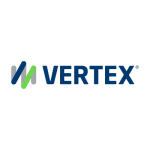In this edition of ITR’s Tax Insights podcast, Commercial Editor Alice Jones is joined by Peter Olanday from Vertex to discuss the effect of the COVID-19 pandemic on the retail landscape, and how this in turn has affected what tax teams need. As commerce becomes more globalised, companies are exposed to an increasing amount of localised tax legislation and expected to report in more jurisdictions.
Not only that, but as multinational enterprises (MNEs) increasingly sell products across borders, this creates problems of its own.
“Any time the order starts in one jurisdiction and ends up in another jurisdiction, you’ve got this matrix of tax laws that you need to navigate,” says Peter. “The borders are becoming more invisible.”
Tax directors at MNEs are increasingly relying on technology to monitor tax legislation and ensure compliance in complex cross-border transactions.
However, companies continue to be exposed to risk by storing their data in external sources like the cloud. Edge computing brings companies’ enterprise resource planning (ERP) systems closer to external data sources, allowing for more control over data, improved response times, and a ‘failover’, should the primary system fail.
Read Vertex’s articles for ITR here.
You can find all ITR podcasts here.
Pete Olanday is the Director of Consulting for Vertex's Vertical Solutions, which includes Retail, Leasing, and Telecommunications. Pete is responsible for the integration of Vertex's Indirect Tax solutions in the retail space, specifically with Point-of-Sale (POS) systems and ecommerce platforms. He has been with Vertex for 10 years and has 24 years of system integration experience, 20 of which in the retail industry.













